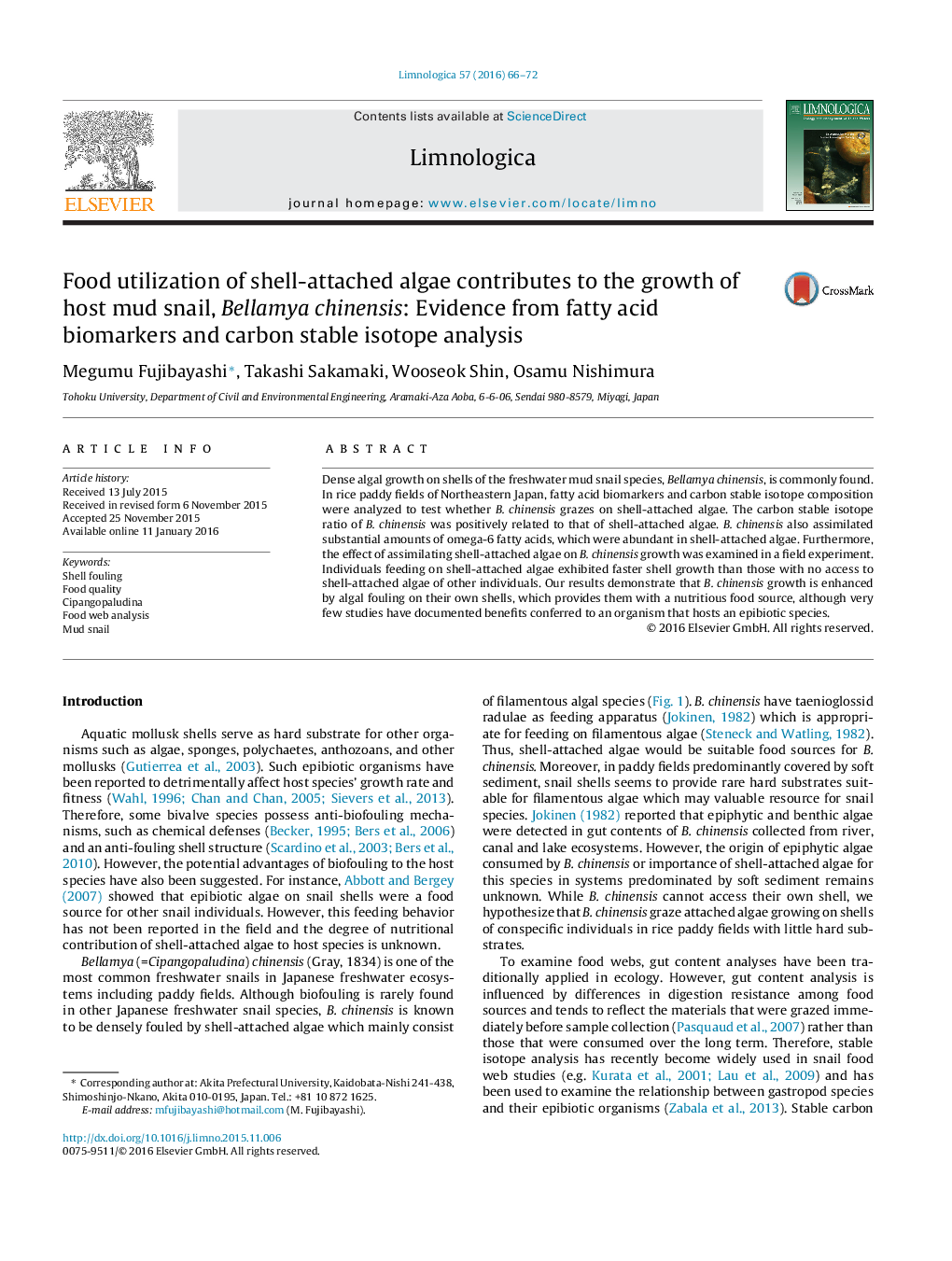| کد مقاله | کد نشریه | سال انتشار | مقاله انگلیسی | نسخه تمام متن |
|---|---|---|---|---|
| 4400328 | 1618565 | 2016 | 7 صفحه PDF | دانلود رایگان |
Dense algal growth on shells of the freshwater mud snail species, Bellamya chinensis, is commonly found. In rice paddy fields of Northeastern Japan, fatty acid biomarkers and carbon stable isotope composition were analyzed to test whether B. chinensis grazes on shell-attached algae. The carbon stable isotope ratio of B. chinensis was positively related to that of shell-attached algae. B. chinensis also assimilated substantial amounts of omega-6 fatty acids, which were abundant in shell-attached algae. Furthermore, the effect of assimilating shell-attached algae on B. chinensis growth was examined in a field experiment. Individuals feeding on shell-attached algae exhibited faster shell growth than those with no access to shell-attached algae of other individuals. Our results demonstrate that B. chinensis growth is enhanced by algal fouling on their own shells, which provides them with a nutritious food source, although very few studies have documented benefits conferred to an organism that hosts an epibiotic species.
Journal: Limnologica - Ecology and Management of Inland Waters - Volume 57, March 2016, Pages 66–72
